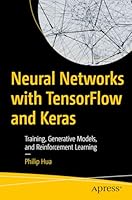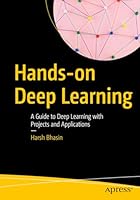
Hands-On Explainable AI (XAI) with Python: Interpret, visualize, explain, and integrate reliable AI for fair, secure, and trustworthy AI apps
- Length: 404 pages
- Edition: 1
- Language: English
- Publisher: Packt Publishing
- Publication Date: 2020-08-11
- ISBN-10: 1800208138
- ISBN-13: 9781800208131
Resolve the black box models in your AI applications to make them fair, trustworthy, and secure. Familiarize yourself with the basic principles and tools to deploy Explainable AI (XAI) into your apps and reporting interfaces.
Key Features
- Learn explainable AI tools and techniques to process trustworthy AI results
- Understand how to detect, handle, and avoid common issues with AI ethics and bias
- Integrate fair AI into popular apps and reporting tools to deliver business value using Python and associated tools
Book Description
Effectively translating AI insights to business stakeholders requires careful planning, design, and visualization choices. Describing the problem, the model, and the relationships among variables and their findings are often subtle, surprising, and technically complex.
Hands-On Explainable AI (XAI) with Python will enable you to work with specific hands-on machine learning Python projects strategically arranged to enhance your grip on AI results analysis. The analysis includes building models, interpreting results with visualizations, and integrating understandable AI reporting tools and different applications.
You will build XAI solutions in Python, TensorFlow 2, Google Cloud’s XAI platform, Google Colaboratory, and other frameworks to open up the black box of machine learning models. The book will introduce you to several open-source explainable AI tools for Python that can be used throughout the machine learning project life-cycle.
You will learn how to explore machine learning model results, review key influencing variables and variable relationships, detect and handle bias and ethics issues, and integrate predictions using Python along with supporting machine learning model visualizations into user explainable interfaces.
By the end of this artificial intelligence book, you will possess an in-depth understanding of the core concepts of explainable AI.
What you will learn
- Plan for explainable AI through the different stages of the machine learning life-cycle
- Estimate the strengths and weaknesses of popular open-source explainable AI applications
- Examine how to detect and handle bias issues in machine learning data
- Review ethics considerations and tools to address common problems in machine learning data
- Share explainable AI design and visualization best practices
- Integrate explainable AI results using Python models
- Use explainable AI toolkits for Python in machine learning life-cycles to solve business problems
Who This Book Is For
This book is not an introduction to Python programming or machine learning concepts. You must have some foundational knowledge and/or experience with machine learning libraries such as scikit-learn to make the most out of this book.
Some of the potential readers of this book include:
- Professionals who already use Python for as data science, machine learning, research, and analysis
- Data analysts and data scientists who want an introduction into explainable AI tools and techniques
- AI Project managers who must face the contractual and legal obligations of AI Explainability for the acceptance phase of their applications







